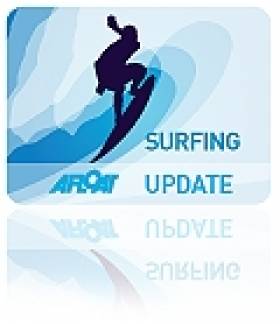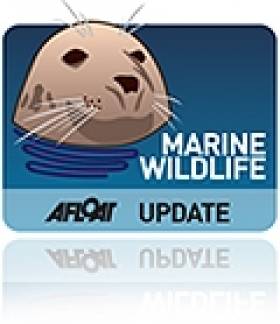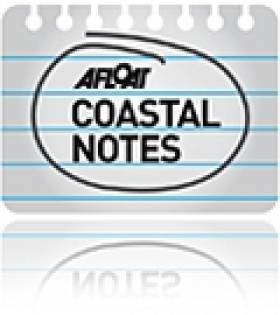Displaying items by tag: Michael D Higgins
Surfers Swarm on Sligo for Year's Biggest Waves
#SURFING - The Irish Times reports that surfers from around the world are flocking to Sligo in expectation of what might be Ireland's biggest waves of the year.
Breakers of up to 30 feet off Donegal Bay could be the result if growing swells in the Atlantic combine with southerly winds expected from this weekend.
“We have had 50ft waves in the past but 30ft waves would certainly be great and you would have a lot of surfers coming into Ireland to follow them," said top Irish surf pro Richie Fitzgerald.
Elsewhere, President Michael D Higgins made a recent visit to the Somo Surf Centre in Cantabria, northern Spain while attending Spanish courses ahead of his State visit to South America last month, as Oceanlook reports.
“I had already heard of the charms of Loredo and Somo," the President commented. "There are many Irishmen flying to Cantabria in search of sun and also waves to get the chance to surf.”
President Michael D Becomes Sole Patron of IWDG
#MARINE WILDLIFE - Newly-elected Irish President Michael D Higgins has agreed to be the sole patron of the Irish Whale and Dolphin Group (IWDG).
President Higgins has a long history of supporting environmental causes. In his inaugural speech he referred to Ireland’s strong cultural, scientific and technological ethos.
IWDG chairman Kevin MacCormick welcomed the President’s decision as a strong endorsement of the group’s work in protecting Ireland's marine wildlife.
He stated: “The IWDG will continue to maintain a sense of pride in our extraordinary national marine heritage and our need for stewardship of the natural environment through research, education and conservation policies.”
The IWDG is Ireland’s only conservation group dedicated to protecting whales and dolphins in Irish waters. It celebrated its 21st anniversary in December 2011.
Carey Courts Criticism Over Corrib Pipeline Approval
Controversy has arisen over the decision by outgoing Minister for Energy Pat Carey to grant key consents for the Corrib gas pipeline on the day of the general election.
According to the Irish Times, the Department of Energy said consent to construct the pipeline was issued "as a matter of course" after An Bord Pleanála approved the new pipeline route in January.
But Green Party sources told the paper that a recommendation on the consent application by Shell Ireland had not arrived on the desk of former Energy Minister Eamon Ryan before he left office that month.
Meanwhile, An Taisce is seeking a judicial review of the planning decision, which is believed to breach a number of EU directives.
As previously reported on Afloat.ie, planning for the last 8km stage of the Corrib pipeline - which runs through a special area of conversation - was only approved with 58 conditions related its construction and management.
Labour Party president Michael D Higgins told The Irish Times: “This is not a decision that one would regard as 'clearing one’s desk' as minister, as it has very serious implications."
The Irish Times has more on the story HERE.































































